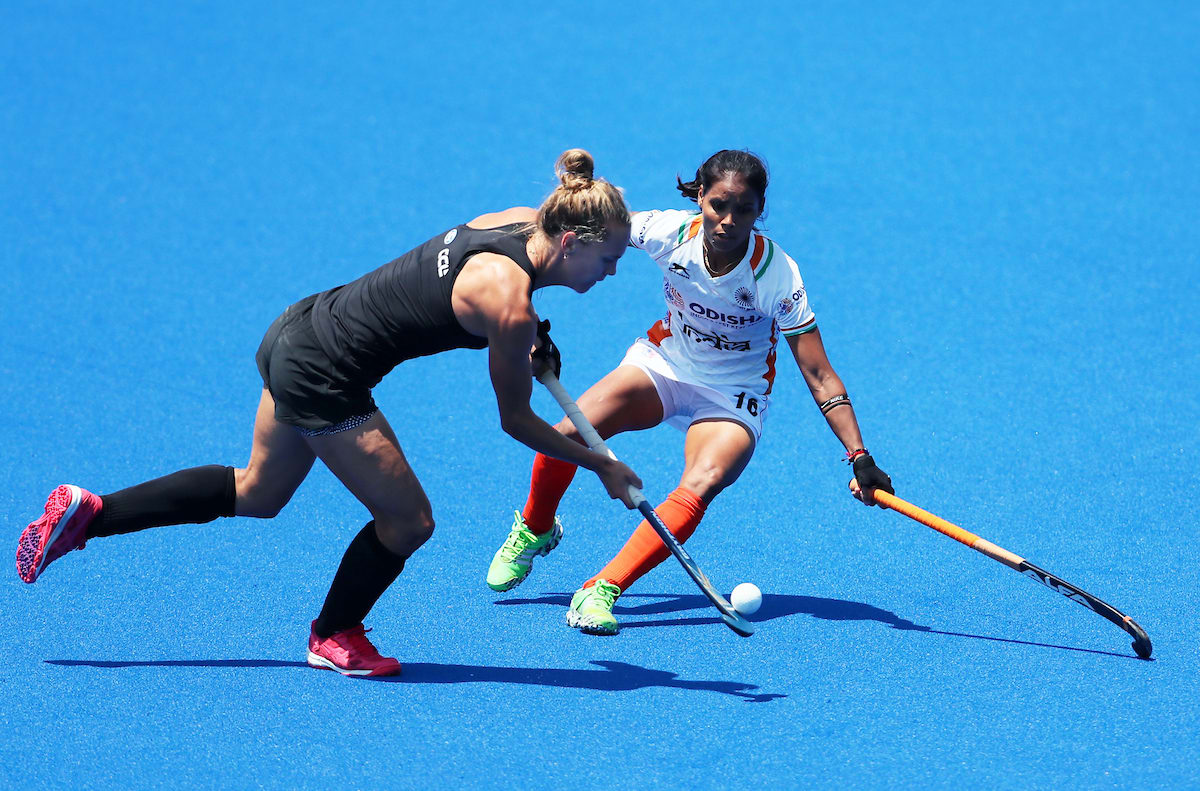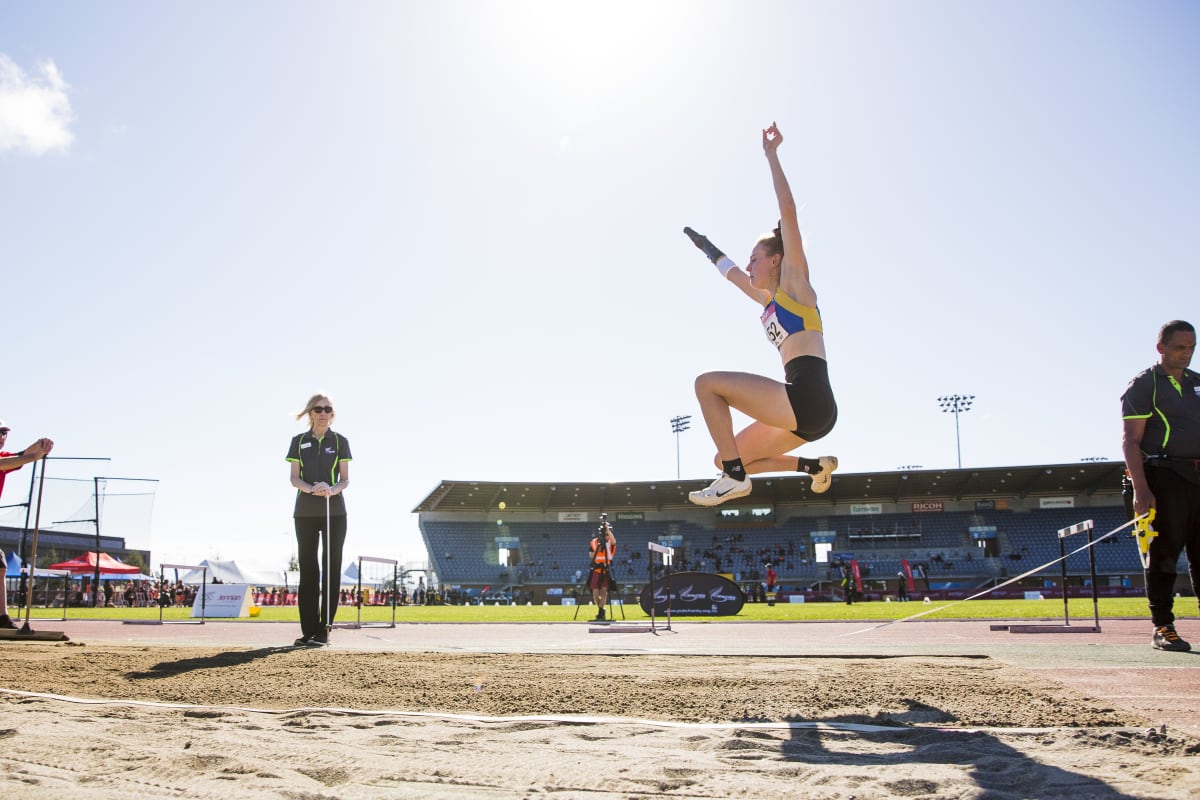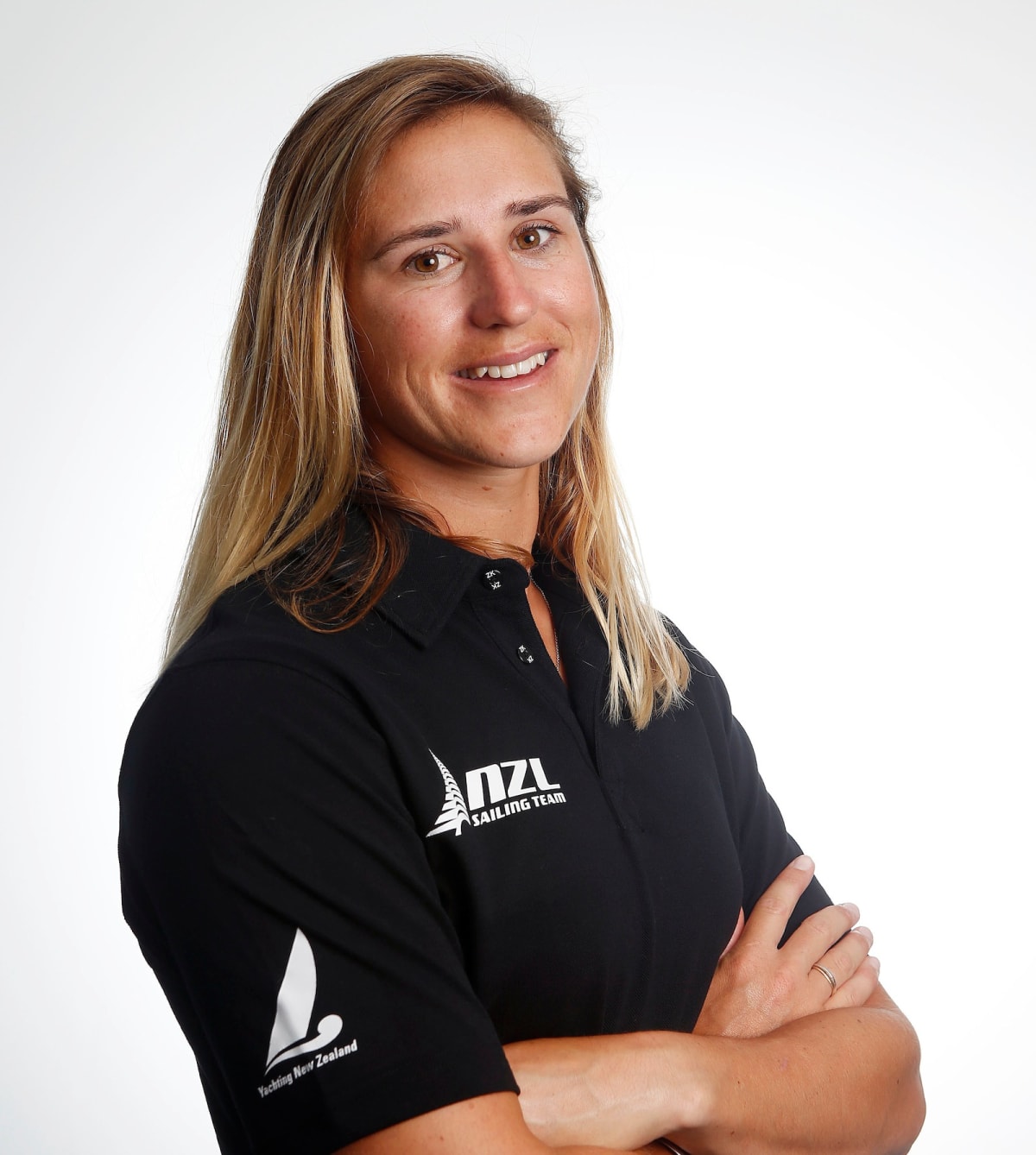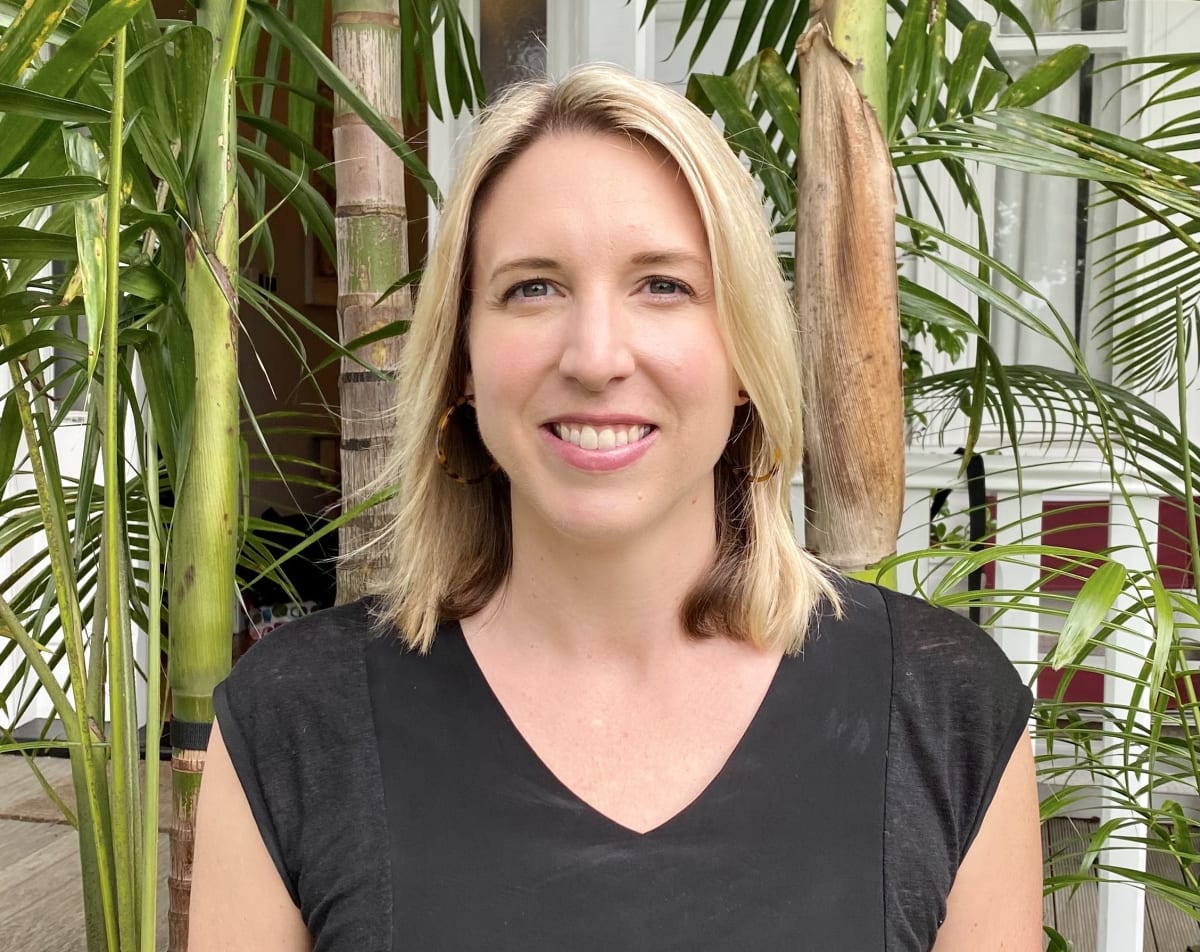
The switch from elite athlete to newbie employee can be tough. But 10 of our top sportspeople are being given a hand up into the workforce through new internships backed by the Prime Minister.
Anna Grimaldi can’t wait to whip off her spikes and lace up her work boots; swap her black singlet for an orange hi vis vest.
So don’t be surprised when you see the double Paralympic gold medallist working on a construction site somewhere in Otago.
While the exceptional long jumper has just started training for a third Paralympics, she’s also about to start work in quantity surveying.
“It’s definitely out of my comfort zone,” Grimaldi says. “But I like doing stuff differently.”
Finding Grimaldi the right job is part of a pilot internship programme helping some of our top athletes on their way to the often difficult transition from full-time sport to full-time work.
She’s one of 10 athletes chosen in the Prime Minister’s athlete scholarship internship pilot, announced today.
The paid internships are funded through a partnership - High Performance Sport NZ investing up to $15,000 in each athlete this year, with the organisation or business employing the athlete matching the investment.
It will be part-time work, tailored to fit around each athlete’s training and competition.
Among the other first athlete interns are Olympic silver medallist sailor Molly Meech, Commonwealth Games hockey gold medallist Frances Davies and three-time Olympic cyclist Rushlee Buchanan. Meech wants to work in sustainability, Davies in criminal justice and social services, and Buchanan in sport health and athlete wellbeing.

The Prime Minister’s athlete scholarships have been around for two decades, giving countless Kiwi sports stars the opportunity to study while they compete.
One of the very first of those scholars was Olympic backstroker Hannah McLean – who’s now leading the internship pilot.
“It’s a big passion for me, having been through the whole journey and knowing how tough that transition is,” says McLean.
“I just remember the feeling of being behind. I was 27 when I started my first job, and my friends had already had promotions.
“This opportunity will directly impact on these athletes’ wellbeing, their future career and their current ability to perform.”
Sport New Zealand CEO Raelene Castle is a big proponent of the internship pilot.
“The Prime Minister’s scholarships have meant athletes can train and study while they’re competing, and this was the missing piece of the puzzle that now completes that,” she says.
“As an athlete who’s still competing, once you’ve finished your study, what do you do next? This takes their skillset to the next level, and it exposes high-end corporates to the athletes - who are talented, smart and understand working in high performance teams.
“With some of our sports, like cycling and rowing, athletes only mature at 28 or 30. So this allows them to end their sporting career with genuine life experience behind them.”
***
The athletes aren’t walking blindly into new jobs. Grimaldi, who’s 24, has diplomas in both quantity surveying and construction management, attained while she’s been competing.
When she left Bayfield High School, Grimaldi wanted to only study in Dunedin. Her dad, Tony, is a quantity surveyor, but she admits she hadn’t paid much interest in his job. Though when Otago Polytechnic came to her school offering quantity surveying as a career option, she listened.
“It was a really good fit for me then - a two-year diploma with no exams, and they were really open to me being away competing,” she says.

When the Tokyo Paralympics were postponed for a year, Grimaldi decided to continue her study, completing a diploma in construction management online. But then she came to a larger crossroads. Having studied all she wanted to, she needed to find “the next thing” – while still aiming for a third consecutive Paralympic gold in the T47 long jump.
“I didn’t know how my segue into the working world would go,” she says. “Then this internship seemed like a great opportunity to entice an employer to take on someone who’ll be away a bit, but will still bring great benefit to them.
“It provides me with a stepping stone. It’s exactly what I was looking for, but just didn’t know it.”
Grimaldi, who’s returning to competition in the Athletics NZ Classics series this summer, isn’t fazed by the challenge of managing a part-time job with full-time sport.
“All of the times I’ve done really well in sport are when I’ve had other things going on in my life - not just sport to focus on,” she says.
***
Molly Meech always feared she was the only athlete who didn’t know what she’d do once her professional sailing days were over.
“But it sounds like we’re all very similar,” laughs Meech, the Rio Olympics silver medallist in the 49er FX.
“Most of us get into the sport when we’re so young. I’ve done a little coaching within sailing, but I’ve been fortunate to sail fulltime. As soon as you think about what other people actually do on a day-to-day basis, it’s pretty daunting when sport is all you’ve known.”

She knew she’d be thrown into the deep end with an internship “but it’s an awesome opportunity to to learn and hopefully figure things out,” she says.
Meech started out studying sport and exercise science, but when she began her Rio Olympic campaign, with Alex Maloney, competing offshore meant she couldn’t do the compulsory lab work for her degree.
Sailing in Brazil brought a lot of environmental issues to the surface, especially involving the ocean, so Meech switched to an environmental science degree. She finished that soon after Rio, and is now studying for her Master’s in sustainable development goals at Massey University; her research so far has been around the Hauraki Gulf and other marine reserves.
“Sustainability has been really present in sailing for the last four or five years, which is really cool,” she says. “It’s such a fast-growing area and so relevant globally.
“I’ve heard people say businesses can learn a lot from high performance athletes, but I think it can also work the other way around. I could definitely learn a lot about how teams operate, how different people interact and leadership.”
***
Hannah McLean thought she could worry about a career when she finished swimming.
A bronze medallist in the 200m backstroke at both the world champs and Commonwealth Games, McLean was part of the stable of legendary swimming coach Jan Cameron, who encouraged her swimmers into tertiary study.

McLean got her bachelor of arts, majoring in English, with the help of one of the first Prime Minister’s athlete scholarships.
“It was a big thing to study and have that paid for - so I wasn’t asking Mum and Dad for money all the time. It meant I could go flatting and it started the development process outside the swimming bubble,” she says.
But when she retired and went to live in London, she thought she’d be able to easily find work. It wasn’t the case. “I sent my CV, and my swimming achievements, to recruitment agencies and didn’t hear back,” she says.
It was only through sporting connections she eventually got her foot in the door at a sports marketing agency. Back in Auckland, McLean works in HPSNZ’s Athlete Life programme, where the internships idea was sparked.
“We saw athletes would keep doing more degrees because they could fit that around their training - but what they really needed was to get out into the workforce,” McLean says. “Because of the restraints of training and competing, there aren’t many organisations keen to take on an athlete part-time.
“The vision is to have a network of employer partners who know the drill, see the value and are happy to invest with their time and financially. It’s the first foot on the ladder, with an organisation that gets it.”
And she hopes the athletes will one day repay the generosity, and return as an employer “who takes on these athletes because it’s what they went through, too.”
* The other athletes in the Prime Minister’s athlete scholarship internment pilot are Olympic trampoline bronze medallist Dylan Schmidt (business and commercial law); Paralympic Winter Games ski medallist Corey Peters (architecture); three-time Olympic sailor Paul Snow-Hansen (art, design and engineering); World University Games decathlon champion Aaron Booth (sports management); lightweight rower Mathew Dunham (creative sales and marketing); and double-Olympian Black Stick Nic Woods (property and finance).






